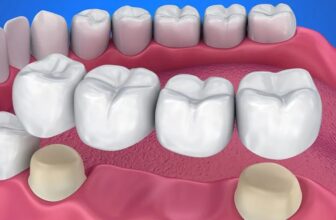
Root canal treatment is a common dental procedure to save an infected or severely decayed tooth. While this treatment can eliminate the infection and alleviate pain, it often leaves the tooth more vulnerable to fractures and further damage. This is where dental crowns come into play. In this blog, we’ll explore the role of dental crowns after root canal treatment, their benefits, and why they are often recommended as part of the therapeutic process.
Understanding Root Canal Treatment
Before discussing crowns, it’s essential to understand what a root canal involves. During the procedure, a dentist removes the infected pulp from the tooth’s interior, cleans and shapes the canal, and seals it to prevent future infections. While the root canal addresses the infection, it doesn’t restore the tooth’s structural integrity.
After a root canal, teeth may become brittle and more susceptible to fractures. This is particularly true for molars, which bear significant chewing forces. Dental crowns are often recommended to protect the tooth and restore its function.
What Are Dental Crowns?
Dental crowns are prosthetic caps placed over a tooth to restore shape, size, strength, and appearance. They can be made from various materials, including porcelain, ceramic, metal, or a combination. Crowns are custom-made to fit snugly over the treated tooth, providing protection and support.
1. Protection and Support
One of the primary roles of a dental crown after root canal treatment is to protect the remaining tooth structure. Once the pulp is removed, the tooth is more vulnerable to cracks and fractures.
Benefits of Protection:
- Strengthening the Tooth: A crown provides a robust outer layer that helps absorb biting forces, reducing the fracture risk.
- Preventing Further Damage: By encasing the tooth, a crown minimizes exposure to bacteria and external factors, helping to prevent additional decay or infection.
2. Restoring Functionality
After a root canal, the treated tooth may lose some of its natural function. Dental crowns help restore the tooth’s ability to chew and perform other essential functions.
Functionality Restoration:
- Chewing Efficiency: Crowns are designed to withstand the forces of chewing, allowing patients to eat various foods without discomfort or fear of damaging the tooth.
- Improved Aesthetics: Crowns can be crafted to match the natural color and appearance of surrounding teeth, enhancing the overall smile and boosting confidence.
3. Aesthetic Considerations
For many patients, the appearance of their teeth is a significant concern. Dental crowns can be made from materials that closely resemble natural tooth enamel, providing a more aesthetically pleasing result.
Aesthetic Advantages:
- Natural-Looking Crowns: Porcelain or ceramic crowns can be customized to match the color and clarity of natural teeth, making them nearly indistinguishable from the surrounding dentition.
- Improved Smile Confidence: Crowns can restore the tooth’s appearance and boost a patient’s confidence and willingness to smile openly.
4. Long-Term Solution
Dental crowns offer a long-term solution for teeth undergoing root canal treatment. While the lifespan of a crown can vary depending on the material and care, they are generally designed to last many years.
Longevity and Maintenance:
- Durability: Crowns are strong and can endure the daily wear and tear of chewing, providing lasting protection for the underlying tooth.
- Care and Maintenance: Proper oral hygiene—such as regular brushing, flossing, and dental check-ups—can help crowns remain in good condition for an extended period, reducing the need for frequent replacements.
5. Customized Treatment Plans
When considering dental crowns, your dentist will create a customized treatment plan based on your specific needs and the condition of your tooth.
Tailored Approach:
- Material Selection: Your dentist will help you choose the most suitable material for your crown, considering factors like the tooth’s location, your budget, and your personal preferences.
- Custom Fit: Crowns are made using precise impressions of your teeth, ensuring a perfect fit that feels comfortable and natural.
Conclusion
Dental crowns play a crucial role in the post-root canal treatment process, offering protection, restoring functionality, and enhancing aesthetics. They serve as a vital component of tooth restoration, helping maintain the treated tooth’s integrity and assisting patients to return to their normal eating and smiling habits confidently.
If you’ve undergone root canal treatment in Bhopal or are considering it, discuss the need for a dental crown with your dentist at Smile Gallery. Our experts can provide personalized recommendations and help you understand the benefits of crowns in ensuring your long-term dental health. Remember, maintaining good oral hygiene and regular dental visits are key to prolonging the life of your dental crown and preserving your smile!







